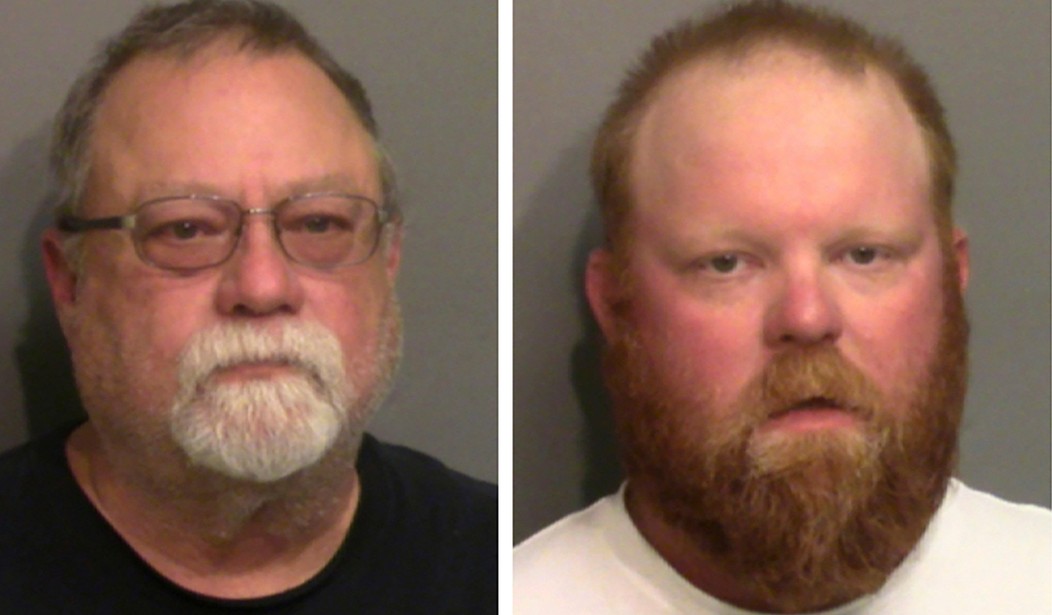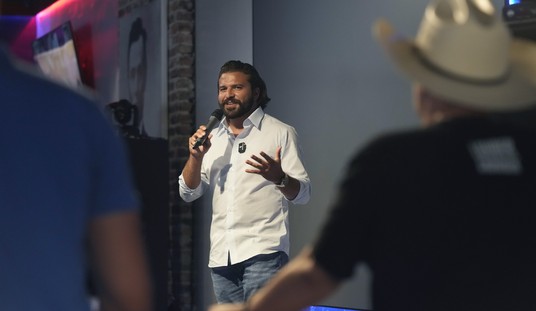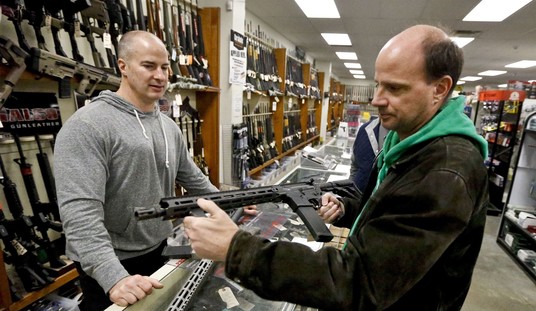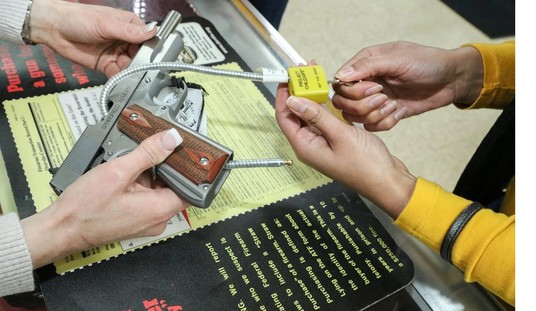Hundreds of prospective jurors are at a gymnasium not far from the Brunswick County Courthouse in Brunswick, Georgia today for the start of what’s expected to a be a long and exhaustive process of trying to find twelve people who are unaware or have no opinion about the death of Ahmaud Arbery last February. Gregory and Travis McMichael, along with their neighbor William “Roddie” Bryan, are accused of murdering the teen; first chasing him through their neighborhood, and then gunning him down after he refused to stop and reached for a shotgun held by Travis McMichael.
The McMichaels say they were trying to enact a citizens arrest of Arbery, who they believed had been burglarizing a home in the neighborhood that was under construction. Bryan says he was just following behind the pair and recording what was going on with his phone, but wasn’t otherwise involved. Prosecutors, on the other hand, say the father and son had no legal right to chase down or try to detain Arbery, and are expected to argue that it was Arbery, not Travis McMichael, who was acting in self-defense when he reached for the shotgun after repeatedly trying to avoid the three men in their vehicles.
But before either side can make their arguments, they need to seat a jury, and that could take a while.
Early Monday, attorneys for the defense and prosecution discussed motions related to media access and jury selection.
Attorneys on both sides were expected to spend the coming days questioning the jury pool, in groups and individually, to determine whether they have formed opinions about the case that render them incapable of serving.
Ultimately the judge needs to seat a jury of 12, plus four alternates who will be on standby to fill in for any jurors who get sick or are dismissed before the trial ends. Once a jury is seated, the trial itself could take more than two weeks, Glynn County Superior Court Clerk Ronald Adams said.
Prospective jurors received a three-page pre-trial questionnaire that asked the potential jurors what they already know about the case, where they get their news, whether they posted any online comments about Arbery’s killing and if they visited the scene of the shooting or did other research into the case on their own.
According to a list of questions read before the court Monday morning, attorneys also hoped to ask jurors about their thoughts on racism, the use of the “n” word, the Confederate flag and the Black Lives Matter movement. Walmsley ruled the attorneys were permitted to ask some of the questions.
Legal experts have said that while race likely won’t likely be a key strategy for the prosecution, they expect it to be prominent in the trial and have raised concerns the defense will try to exclude potential jurors based on race. Brunswick, which has just over 16,000 residents, is predominantly Black but sits in the overwhelmingly white Glynn County.
While race and racism may be a theme for the prosecutors, what matters more than any potential prejudiced or bigoted beliefs held by the defendants is whether or not they had the right to chase Arbery down after they saw him running down the street. Georgia’s citizens arrest law, which has since been repealed, allowed for any citizen to effect an arrest if a crime was committed “within his immediate knowledge.” Besides facing charges of murder, the defendants are also facing attempted kidnapping charges, and the state is going to have to show that the three men had no legal right to detain Arbery even if they suspected him of previous theft from the home under construction.
I’ve said all along that I’m keeping an open mind with the case, though I suppose it’s more accurate to say I’m open-minded enough to change my mind based on the evidence and testimony to come. From what we’ve been told to date, I’m of the opinion that the McMichaels probably did not have the legal right to try to detain Ahmaud Arbery and that they were the initial aggressors in the chain of events that led to Travis McMichael shooting and killing Arbery as the 25-year old reached for McMichael’s shotgun. Bryant maintains he was just following and filming but wasn’t a part of the actual confrontation, and I honestly have no idea if that’s the case or not.
One law professor thinks the McMichaels’ case is pretty weak.
The three defendants say they chased Arbery because they believed he was behind neighborhood burglaries and allege they saw him trespass prior to the incident. Arbery, of course, had committed no crime; under Georgia’s “criminal trespass” law, entry onto “land or premises,” including a construction site, is only a crime when committed “with an unlawful purpose” or when there are posted “No Trespassing” signs. There is no evidence of either in this case.
For the McMichaels, the key is whether or not they had any “immediate knowledge” of Arbery committing a crime. I would argue that while the father and son may have had their suspicions, the fact is that they had already told police everything they knew about the alleged burglaries in the area (in reality, the only burglary reported in recent months in the neighborhood was the theft of a gun from a truck owned by Gregory McMichael), but there wasn’t enough evidence to accuse or arrest Arbery for any crime. Suspicion, however well-founded, is not knowledge, and it’s ultimately on that point that the trial will hinge. If the jury believes they had the legal right to pursue Arbery and make a citizens arrest, then it’s far more likely they’ll agree that McMichaels was acting in self-defense when Arbery reached for his shotgun.
If, on the other hand, the McMichaels had no legal authority to chase Arbery down and hold him at gunpoint until the police arrived, then McMichaels had no right to pull the trigger when Arbery reached out his hand towards the gun after repeatedly trying to get away from the men.
Self-defense or murder? A citizens arrest or an attempted kidnapping? These are the questions entwined at the heart of this case, and while I’m not normally one to follow the daily ins-and-outs of the media’s trial du jour, I’ll be closely following and writing about this one in the weeks ahead, with a focus on the fundamental right of self-defense and how both defendants and prosecutors are raising that claim.









